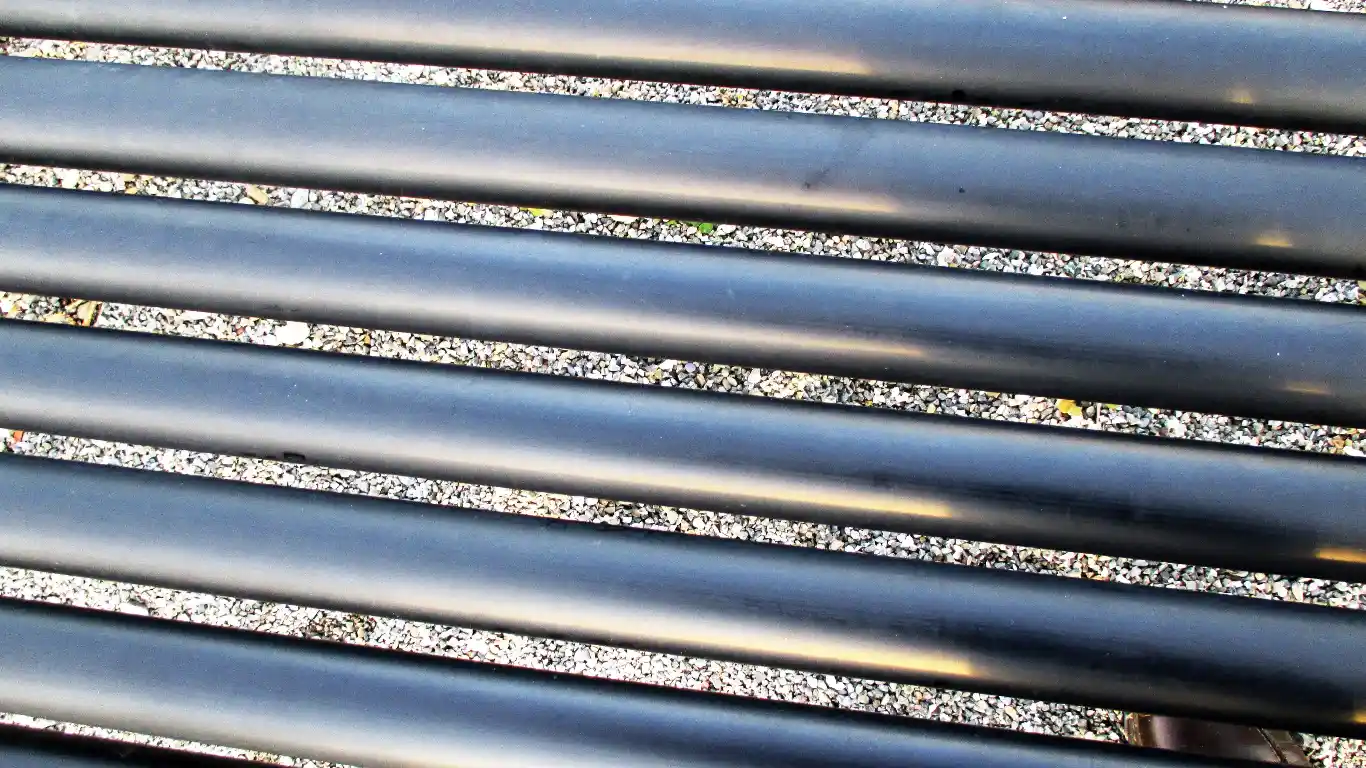Why Carbon Steel Is Essential in Various Industries
Key Characteristics of Carbon Steel
Strength and Durability
One of the primary reasons carbon steel is favored in construction and other industries is its exceptional strength and durability. This type of steel contains carbon as the main alloying element, which significantly boosts its tensile strength, allowing it to withstand extensive pressure and wear over time. Whether used in high-rise buildings, bridges, or heavy machinery, carbon steel ensures that structures remain robust and resilient, meeting safety and reliability standards.
Cost-Effectiveness
In addition to its mechanical properties, carbon steel is also notable for its cost-effectiveness. It is relatively affordable compared to other high-strength alloys like stainless steel or titanium. Its availability and ease of production reduce manufacturing costs, making it an economically viable option for large-scale projects. Companies benefit from lower material costs without compromising on quality or performance, which can be particularly advantageous in budget-sensitive projects.
Versatility in Applications
Carbon steel’s versatility further enhances its appeal in various industries. With its ability to be modified in terms of carbon content and treatment processes, different grades of carbon steel can be engineered to meet specific requirements. This adaptability makes it suitable for a wide range of applications, from constructing buildings to crafting precise tools and gear components. The capacity to tailor carbon steel to particular needs adds immense value across diverse fields.
Common Uses of Carbon Steel
Construction
In the construction industry, carbon steel is an indispensable material. Its applications range from structural beams and columns in skyscrapers to reinforcement bars in concrete structures. The high strength-to-weight ratio of carbon steel makes it ideal for supporting heavy loads while maintaining the integrity of the structure. Furthermore, its resistance to corrosion and harsh environmental factors extends the lifespan of buildings and infrastructure, ensuring long-term stability and safety.
Automotive Industry
The automotive sector relies heavily on carbon steel for manufacturing various vehicle components. From the chassis and body panels to engine blocks and suspension systems, carbon steel provides the necessary strength and durability to withstand the rigors of daily use. Its ability to absorb impact, coupled with cost efficiency, makes it a preferred choice for producing both heavy-duty trucks and passenger vehicles. Enhancements in fabrication techniques have also enabled the production of lightweight, high-strength carbon steel components, contributing to fuel efficiency and overall vehicle performance.
Tools and Machinery
Carbon steel is ubiquitous in the production of tools and machinery due to its hardness and wear resistance. High carbon steel, for example, is often used to make cutting tools, drill bits, and hand tools that require a sharp and enduring edge. In the realm of heavy machinery, carbon steel parts are crucial for the fabrication of gears, bearings, and other components subjected to intense operational stress. The material’s ability to maintain integrity under high pressure ensures the reliable functioning of tools and machines in diverse industrial settings.
By understanding why carbon steel is essential in various industries, it’s clear that its key characteristics—strength, cost-effectiveness, and versatility—drive its widespread adoption. Moving forward, exploring the different types of carbon steel and their specific applications will further highlight why this material remains a cornerstone in industrial advancement.
Types of Carbon Steel
Low Carbon Steel
Properties and Uses
Low carbon steel, often known as mild steel, contains approximately 0.05% to 0.25% carbon by weight. This low carbon content makes the steel softer and more ductile, allowing it to be easily shaped and welded. This type of steel is used extensively in the manufacturing of wire, fencing, and structural beams due to its malleability and ease of manipulation. Low carbon steel is also less prone to brittleness and is, therefore, ideal for applications where toughness is prioritized over strength.
Medium Carbon Steel
Properties and Uses
Medium carbon steel contains around 0.25% to 0.60% carbon, offering a balance between strength and ductility. This type of carbon steel can be heat-treated to improve its mechanical properties, making it suitable for high-stress applications. Common uses include the production of automotive components like axles and shafts, as well as machinery parts such as gears and crankshafts. The enhanced strength and wear resistance make medium carbon steel a versatile choice for parts that require durability and reliability without sacrificing too much flexibility.
High Carbon Steel
Properties and Uses
High carbon steel, with a carbon content ranging from 0.60% to 1.25%, is the hardest and most robust among the three types. This type of steel can be heat-treated to achieve exceptional hardness and resistance to wear and abrasion. High carbon steel is commonly used in the manufacture of high-strength wires, springs, and cutting tools such as knives and saw blades. The increased carbon content, while beneficial for hardness and wear resistance, makes the material more brittle, necessitating careful handling during its use in applications demanding long-lasting sharpness and strength.
Benefits of Using Carbon Steel Over Other Materials
Enhanced Security Features
Carbon steel offers enhanced security features in its application, especially in construction and infrastructure projects. The superior strength and resistance to deformation ensure that structures built using carbon steel can withstand high-impact forces and adverse conditions, making them safer and more secure. This is particularly important in critical infrastructure where safety is paramount. Carbon steel’s ability to be fortified through various treatments further adds to its reliability in high-stake situations.
Eco-Friendly Aspects
One of the notable benefits of using carbon steel is its eco-friendly nature. Steel is one of the most recycled materials on the planet, which significantly reduces its environmental footprint. The recycling process for carbon steel is highly efficient, conserving energy and raw materials while reducing greenhouse gas emissions. Using recycled carbon steel in new projects not only preserves natural resources but also supports sustainable construction practices, aligning with global efforts to reduce environmental impact.
Maintenance and Longevity
Carbon steel is renowned for its low maintenance requirements and longevity. Structures and components made from carbon steel require minimal upkeep due to their resistance to wear, corrosion, and other forms of degradation. This durability translates into long service life, reducing the need for frequent replacements and repairs. For businesses and industries, this means lower operational costs and enhanced economic benefits over the material’s lifespan.
Considerations When Choosing Carbon Steel
Compatibility with Specific Applications
When selecting carbon steel for a particular application, it’s crucial to consider its compatibility with the intended use. Different grades of carbon steel are suited to different environments and stress conditions. For instance, while low carbon steel is ideal for applications requiring high ductility and formability, high carbon steel is better for scenarios demanding hardness and wear resistance. Understanding the specific requirements of your project helps in choosing the right grade of carbon steel, ensuring optimal performance and longevity.
Understanding Grades and Specifications
Understanding the various grades and specifications of carbon steel is essential for making an informed choice. Different standards, such as ASTM and SAE, provide detailed guidelines on the properties and performance of various carbon steel grades. These specifications cover aspects such as tensile strength, ductility, hardness, and impact resistance. Familiarity with these details enables you to select the most appropriate material, ensuring that the carbon steel you choose meets the precise demands of your application.
In conclusion, carbon steel remains an indispensable material across various industries due to its remarkable properties and extensive applications. By choosing the appropriate type and understanding the nuances of its use, industries can leverage carbon steel’s strength, cost-effectiveness, and adaptability to achieve superior outcomes in their projects.
SUNRISE NEW MATERIAL is an international supplier of steel and non-ferrous metal raw materials. They are committed to providing customized supply solutions for steel and metal products to global users. SUNRISE NEW MATERIAL has become a preferred supplier for thousands of customers worldwide, with a strong supply chain network and reliable services.
Based in Qingdao, China, SUNRISE NEW MATERIAL has invested in production lines for various products, including carbon steel. They offer a wide range of carbon steel products, such as carbon steel sheets, carbon steel coils, and carbon steel pipes. These products are made from high-quality carbon steel materials and are available in different sizes and specifications to meet customer requirements.
SUNRISE NEW MATERIAL has established long-term relationships with reputable steel mills, such as Baosteel, Taiyuan Iron and Steel, and POSCO, ensuring the quality and reliability of their carbon steel products. They also have multiple large warehouses in major domestic ports, ensuring timely delivery to customers.
With a focus on high-end transformation and intelligent manufacturing, SUNRISE NEW MATERIAL actively promotes the development of the steel industry. They aim to be a benchmark enterprise in the industry, contributing to the global steel industry’s growth with their expertise and dedication.







